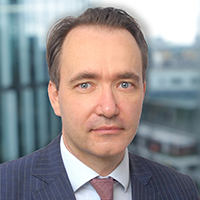Understanding the Scale and Pace of Change
The KSA has gone through a paradigm shift in almost all facets of life over the last 8-10 years. What was unthinkable in 2015 is now commonplace.
The enhanced participation of women in the overall workforce as well as the rapid development of a "start up" culture (e.g. female business start ups exceed both male business start ups and the European average) is testimony to these changes.
The Saudi economy has been an international powerhouse, but is now maturing and diversifying. Over $3 trillion of investment is planned by 2030 in high profile projects such as NEOM, Qiddiya and the Red Sea Global (to name a few). Internationally, the breadth of the investments now includes high profile sports clubs such as Newcastle United, but also the LIV Golf League, tennis and motorsports, as well as winning the right to host the 2034 FIFA World Cup and the 2029 Asian Winter Games (yes, winter games). Each of these investments is having a transformational effect, changing the KSA's position in the world.
Appreciating the importance of Vision 2030
To understand why so many "big ticket" investments have been made by the KSA in recent years it is necessary to look to the Vision 2030 strategy, the ambitious plan was overseen by Mohammed bin Salman Al Saud, the Crown Prince and Prime Minister of KSA that was published in 2016. It articulates the aim of realising the KSA's vast potential by “creating a diversified, innovative and world leading nation, for the benefit of future generations.”
In making investments, the KSA:
(i) strives to be a global investment powerhouse (economic returns);
(ii) wants to diversify its non-oil economy (develop and transform the KSA), and
(iii) seeks to become a hub bridging three continents, connecting East and West (geo-political aims).
This drives investments in key strategic sectors, such as technology, renewable energy, manufacturing, tourism, and entertainment. Investments in the first three sectors aim to transfer knowledge and expertise back to the KSA to contribute to the growth of the KSA economy and create new job opportunities, whilst the KSA at the forefront of future global economic trends. Investments in tourism and entertainment help the KSA more closely integrate into the global community. The investment strategies are also underpinned by commitments to ESG (environmental, social and governance).
It is important to understand that KSA is no longer a place where you can "fly in / fly out". The regulatory environment when it comes to visa / travel, emphasis on localization and generally doing business is geared to favour those who make commitments. The KSA is open for business. It is not open for taking the bounty without making investments. A good example of this is the Regional Headquarters Programme (and indeed, DWF was the first legal business to obtain the RHQ license).
Different culture, similar aims
Fostering business relationships is not too dissimilar with the Western approaches, namely to build trust and understanding ahead of working together. There are, however, nuances and it is easy to commit faux pas. In dealings in the Kingdom, business people should consider that Saudi culture strongly values relationships, not transactions. One should act accordingly, so here are some top tips:
- Shake hands with each man in the room starting with the most senior. Wait for a woman to extend her hand before extending your own. Keep your hands to your side if she does not.
- Business meetings normally don’t have an agenda and you should not take it personally should a scheduled appointment begins late, is interrupted or is cancelled.
- It is usual to have casual conversations on topics that are not business related. This is an important stage and you should invest in taking the time to build positive rapport and trust. You will often encounter an indirect and friendly communication style. Consider the right tone and words to use, especially in front of seniors. Enquire whether someone's family is doing – do not ask how someone's wife is doing!
- It is important to present yourself well. Formal dress is required for offices and meetings. Men are expected to be in a suit and tie. Women wear an abaya, although foreign women are exempt from wearing a head scarf, it is expected that they will consider covering as much skin as possible.
- In Saudi Arabian business, a small group of senior executives control key decisions. Whilst more junior colleagues may have a say in planning, implementation and budgeting, it is only a small group of people are normally involved in making strategic decisions.
- There is a significant advantage in having offices in both the KSA and the UK to develop relationships. For example, AlQhtani & Partners (officially, Nouf AlQhtani Legal Consultants) in Riyadh is growing and works on a daily basis with DWF's offices in cities such as London, Manchester and Newcastle. We also have our regional Legal Operations business based out of Riyadh thus KSA is a melting pot of integration of legal services and technology.
Conclusion
The Great Futures event offers excellent opportunities for creating and developing closer working relationships. By taking account of the steps set out, business leaders from the UK can make the most of the opportunities available.
DWF is on hand to help you with your investments. We are the only legal services business which has offices in Newcastle, Leeds, Manchester and Liverpool as well as having the benefit of a regional headquarters license (RHQ) in Riyadh, KSA.














